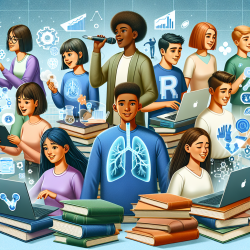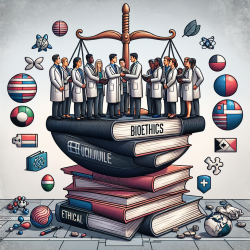As speech-language pathologists (SLPs) and healthcare providers, it is crucial to integrate research findings into our practice to optimize outcomes for our clients. A recent review titled The Impact of Tuberculosis on the Well-Being of Adolescents and Young Adults provides valuable insights into the multifaceted impact of tuberculosis (TB) on adolescents and young adults (AYAs). This blog will highlight key findings from the research and offer actionable strategies for practitioners to enhance their therapeutic approaches for this population.
Understanding the Impact of TB on AYA Well-Being
The review identifies five critical domains of adolescent well-being affected by TB: good health, connectedness and contribution to society, safety and a supportive environment, learning and competence, and agency and resilience. Here, we summarize the main findings and discuss how SLPs can address these issues in their practice.
1. Good Health
- Physical and Mental Health: TB not only affects physical health but also has significant mental health repercussions, including depression and anxiety.
- Adherence to Treatment: AYAs often struggle with adherence due to the prolonged treatment duration and side effects.
Actionable Strategy: SLPs can incorporate mental health screenings into their assessments and collaborate with mental health professionals to provide comprehensive care. Implementing teletherapy can also support adherence by offering flexible scheduling and reducing the stigma associated with clinic visits.
2. Connectedness and Contribution to Society
- Social Isolation: Prolonged isolation due to TB treatment can lead to feelings of loneliness and depression.
- Stigma: TB-related stigma can significantly impact social relationships and self-esteem.
Actionable Strategy: Encourage the use of online support groups to foster social connections and reduce feelings of isolation. Educate families and communities about TB to mitigate stigma and promote a supportive environment.
3. Safety and a Supportive Environment
- Basic Needs: TB treatment can impose financial strain on families, affecting their ability to meet basic needs.
- Privacy: AYAs often fear stigma and discrimination, impacting their willingness to seek treatment.
Actionable Strategy: Advocate for financial support programs and privacy policies that protect the identities of AYAs undergoing TB treatment. SLPs can also work with schools to provide accommodations that support continued education during treatment.
4. Learning, Competence, Education, Skills, and Employability
- Educational Disruption: TB treatment often leads to prolonged absences from school, affecting academic performance and future career prospects.
Actionable Strategy: Develop individualized education plans (IEPs) that accommodate the unique needs of AYAs with TB. Provide online tutoring and educational resources to minimize academic disruption.
5. Agency and Resilience
- Self-Esteem: TB can negatively impact self-esteem and hinder the development of agency and resilience.
Actionable Strategy: Incorporate activities that build self-esteem and resilience into therapy sessions. Use goal-setting and positive reinforcement to empower AYAs and enhance their sense of agency.
Encouraging Further Research
The review underscores the need for more research to understand the specific challenges faced by AYAs with TB. SLPs and other healthcare providers are encouraged to contribute to this body of knowledge by conducting studies and sharing their findings.
To read the original research paper, please follow this link: The Impact of Tuberculosis on the Well-Being of Adolescents and Young Adults.










